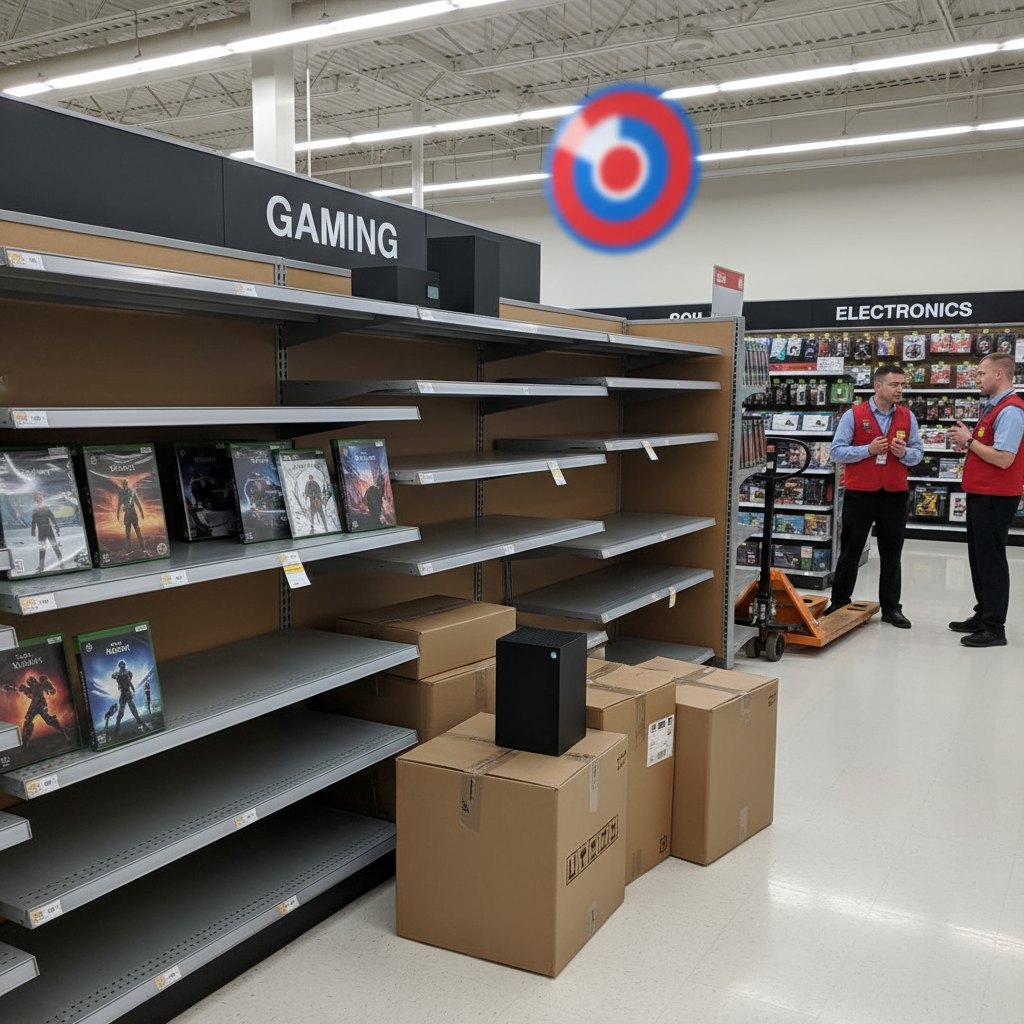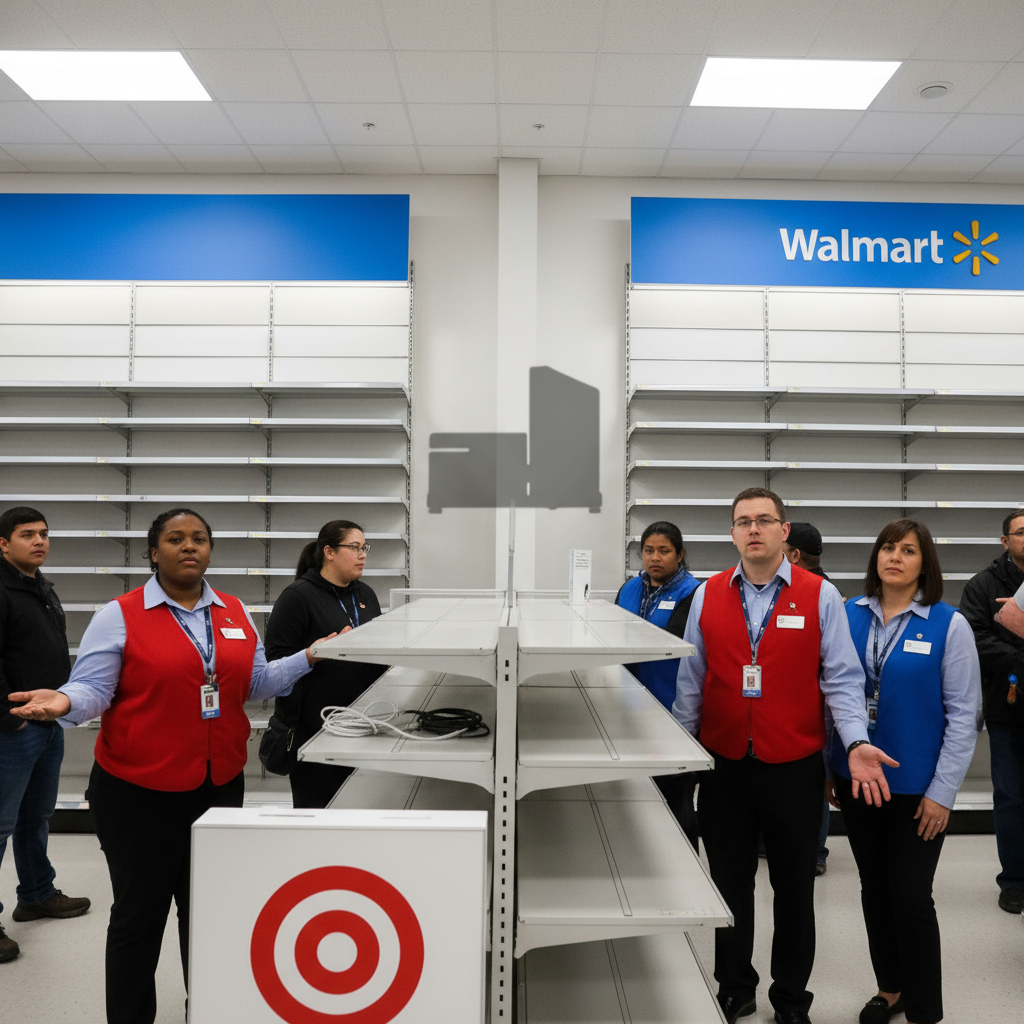Is the Xbox Losing its Retail Shelf Space? Rumors Swirl Around Target and Walmart

The gaming world is abuzz, and not for a new console launch or a blockbuster title. Instead, whispers from the digital grapevine are sparking concern and speculation among Xbox fans. Allegations from supposed employees of retail giants Target and Walmart suggest that these stores might be pulling Xbox consoles and accessories from their shelves. If true, this move could signal significant shifts in the console market and retail strategies. But what’s the real story behind these claims?
The rumors surfaced on Reddit, a common breeding ground for unconfirmed leaks and insider information. A post gaining traction in the r/technology subreddit linked to an article detailing claims from alleged staff members. These individuals reportedly stated that their stores were either reducing Xbox stock, removing it entirely, or prioritizing PlayStation and Nintendo products. While such claims are often met with skepticism, the sheer volume and consistency of similar reports across various forums have many wondering if there’s more to this than just internet chatter.
The Retailer Perspective: Why Would Target and Walmart Pull Xbox Stock?

From a purely business standpoint, retailers like Target and Walmart operate on margins and sales velocity. They prioritize products that move quickly and contribute significantly to their bottom line. If Xbox sales are indeed lagging behind competitors like PlayStation and Nintendo, then reducing shelf space dedicated to Microsoft’s console isn’t an illogical step.
- Reduced Sales Performance: One of the most straightforward explanations is simply that Xbox consoles and accessories aren’t selling as well as competing products. Retailers closely monitor sales data, and if one console brand consistently underperforms, it makes financial sense to allocate that valuable shelf space to items with higher turnover.
- Inventory Management Challenges: Keeping a diverse inventory requires significant investment in space, logistics, and capital. If Xbox stock is sitting for extended periods, it ties up resources that could be used for more profitable merchandise. Retailers might opt to streamline their offerings to optimize inventory management.
- Shift in Consumer Demand: The gaming landscape is dynamic. While Xbox has a loyal fanbase, recent market trends might indicate a stronger preference for PlayStation’s exclusive titles or Nintendo’s unique family-friendly appeal and innovative hardware. Retailers must adapt to these shifts in consumer demand to remain competitive.
It’s also worth considering the possibility of regional differences. While some stores might be seeing reduced Xbox sales, others could be performing adequately. However, a widespread directive to pull or reduce stock would suggest a more systemic issue.
The Xbox Angle: Is Microsoft Facing Challenges?
If these rumors hold true, they would undoubtedly raise questions about Xbox’s current market position. While the Xbox Series X|S generation has seen its share of highly acclaimed games and services like Game Pass, it has also faced stiff competition.
- Exclusive Title Shortage (Perceived): Despite efforts, some critics and consumers feel that Xbox has struggled to deliver a consistent stream of console-selling exclusive titles compared to PlayStation. While Game Pass offers incredible value, the allure of specific must-play games often drives console purchases.
- Game Pass Strategy: While Game Pass is undeniably a powerful offering, some argue that it might inadvertently reduce hardware sales in the long run. If players can access a vast library of games without purchasing them á la carte, the perceived need to own the latest console for specific exclusive titles might diminish.
- Market Dominance of Competitors: PlayStation has consistently held a strong market share, especially in Europe and Japan, while Nintendo’s Switch has become a phenomenon with its hybrid nature and evergreen titles. Xbox, while successful in certain territories, faces an uphill battle against these established giants.
It’s crucial to remember that Xbox operates a multi-faceted business, including PC gaming, cloud gaming, and its hardware division. A potential reduction in retail presence for consoles doesn’t necessarily spell doom for the entire brand, but it does highlight potential areas of concern for its traditional console strategy.
What This Could Mean for Gamers and the Industry
For gamers, especially those who prefer physical shopping, a reduction in Xbox stock at major retailers could be significant. It might force them towards online-only purchases or specialized electronics stores, potentially making the decision to buy an Xbox a less convenient one. This could, in turn, further impact sales at those mass-market retailers, creating a self-fulfilling prophecy.
For the console industry, such a move, if confirmed, would highlight the immense power of retail partnerships. The ability to display products prominently in high-traffic stores is invaluable for brand visibility and impulse purchases. If Xbox’s physical presence diminishes, it could influence consumer perceptions and further solidify the market positions of its competitors.
Moreover, it could also signal a broader shift in how consoles are sold. With the rise of digital distribution and direct-to-consumer sales, physical retail might become less critical for some products. However, for a major purchase like a console, the ability for consumers to see, touch, and browse in person still holds considerable sway.
The Official Silence and The Unofficial Buzz
As of now, neither Target, Walmart, nor Microsoft have issued official statements addressing these rumors. This silence is typical for ongoing market speculation, but it also allows the rumor mill to churn with increased vigor. Without official confirmation or denial, everyone is left to dissect the alleged employee accounts and try to piece together the truth.
The gaming community, especially on platforms like Reddit, thrives on these kinds of discussions. While unverified, such reports often act as early warning signals or provide insights into potential trends. It’s a reminder that even in an age of official announcements, the boots-on-the-ground observations of retail staff can sometimes paint a clearer, albeit unofficial, picture of what’s happening at the consumer-facing end of the business.
Conclusion: Watching the Shelf Space
The allegations that Target and Walmart are pulling their Xbox stock are certainly unsettling for many Xbox enthusiasts. While individual employee claims should always be treated with a degree of skepticism, the consistency of these reports across different sources begs further investigation. Whether this is a localized issue, a misinterpretation of routine inventory adjustments, or a sign of a broader strategic shift by retailers and perhaps even Microsoft, remains to be seen.
What is clear is that the battle for retail shelf space is fierce, and retailers will always make decisions based on what drives sales and profitability. For now, gamers and industry watchers will be keeping a close eye on the shelves of Target and Walmart, waiting to see if these whispers evolve into a confirmed reality that could reshape the console retail landscape.

